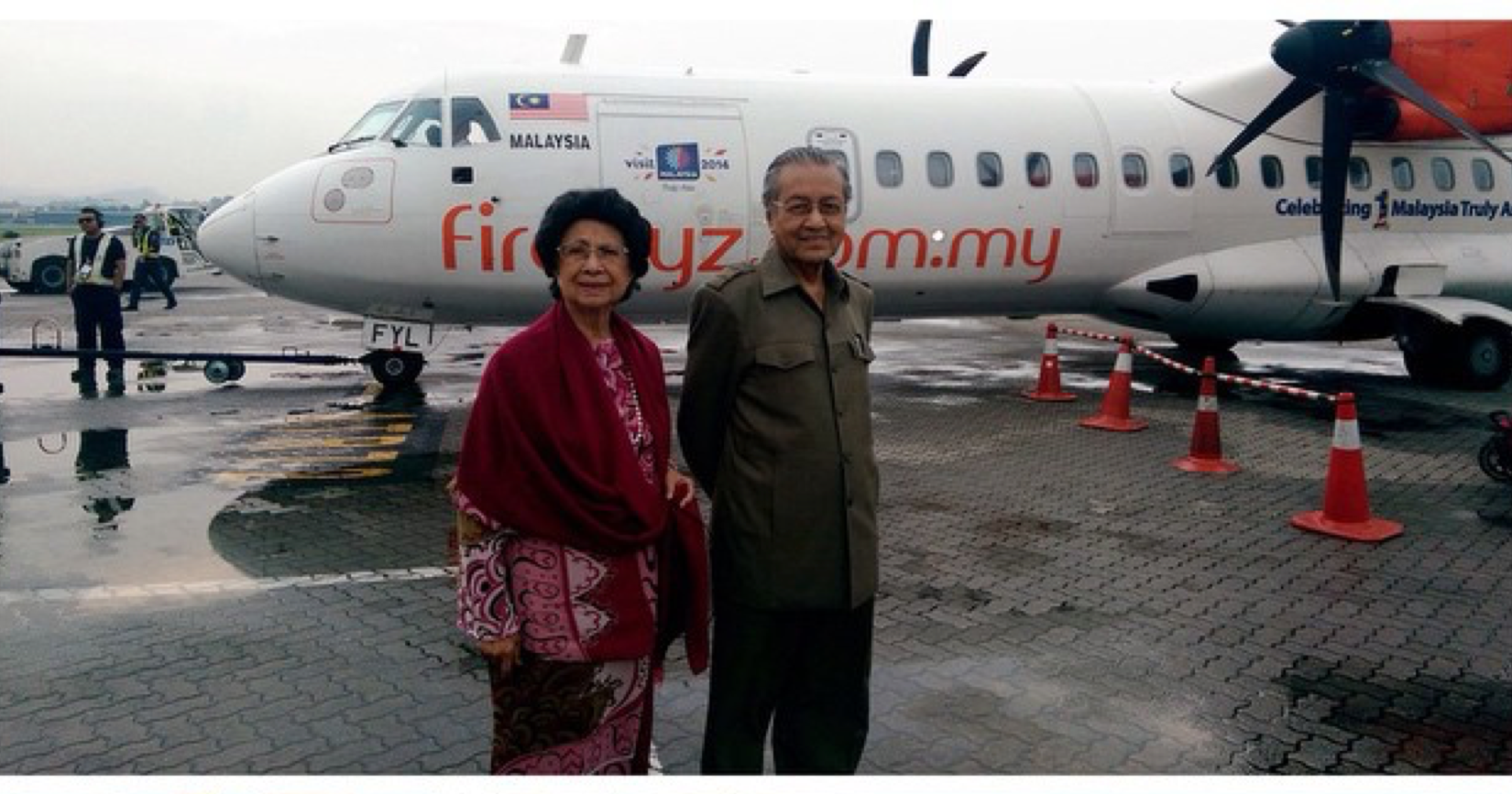The fallout from the dispute between Singapore and Malaysia over airspace has a real economic impact.
On at least one Malaysian company.
One of the first to get burned is Firefly, a Malaysian short-haul carrier.
On Jan. 11, The Malaysian Insight published an interview with Malaysia Airlines Group's chief executive officer, Izham Ismail, taking stock of the monetary losses.
Firefly taking losses
Here's how Malaysia is not good for a Malaysian company:
Firefly is a subsidiary of Malaysia Airlines Group.
Following the suspension of Firefly's proposed move to the newly-opened Seletar Airport, Izham said that the company was suffering significant losses.
"The exposure, the revenue lost (from the suspension) is RM15 million (S$4.95 million), so we’re looking at RM15 million to RM20 million (S$6.6 million) revenue lost on a monthly basis," he said.
"Firefly has been doing well over the past three years, so this is a huge dent to the group."
Proposed shift from Changi to Seletar
Let's back up.
In November 2018, Changi Airport Group (CAG) announced that the new Seletar Airport would be able to handle turboprop flights in Singapore, starting from Dec. 1, 2018.
At the time, Firefly operated turboprop flights out of Changi Airport.
Singapore intended to shift turboprop operations from Changi to Seletar, and Firefly was supposed to be the first carrier to run turboprop flights there.
But this move failed when Firefly did not get permission from the Civil Aviation Authority of Malaysia.
This is despite Seletar Airport meeting all the requirements under the International Civil Aviation Organisation, according to the Civil Aviation Authority of Singapore (CAAS).
Objection to ILS used
CAAM apparently objected to the new Instrument Landing Systems (ILS) to be used at Seletar, on the grounds that they will restrict the development of the Pasir Gudang industrial area in Johor.
This reason was also cited by Malaysian Transport Minister Anthony Loke as to why Malaysia needs to reclaim "sovereignty" of the airspace over Southern Johor -- even if airspace traffic management is about safety and efficiency, and has nothing to do with territorial sovereignty.
ILS suspended
On Jan. 8, foreign affairs ministers Vivian Balakrishnan and Saifuddin Abdullah agreed that the ILS at Seletar Airport will be suspended for a period of one month.
The ILS were supposed to take effect from Jan. 3.
Transport ministers Loke and Khaw Boon Wan are also slated to meet for discussions, but no concrete date has been announced yet.
Firefly in no-man's land
While talks between both sides are scheduled, Firefly is caught in a bind.
It can't move into Seletar, but it can't go back to Changi Airport either without permission.
Firefly's new chief executive officer Phillip See said the carrier has requested to move back into Changi.
See said: "We also want to approach a more diplomatic stance and really just politely ask Singapore airport and say, ‘look, in view that we don’t have the infrastructure fully endorsed, the government has already removed the approval of the ILS, please accede to our request and release temporarily the landing slots in Changi."
Changi Airport Group has submitted a request to CAAS and remains "cautiously optimistic", said See.
Problem needs to be resolved
While it is a Malaysian company that is currently hurting, this dispute also impacts Singapore's reputation as a sound business hub.
Singapore has been ranked one of the least risky countries in the world for foreign investment, in part due to our political stability.
It is, of course, in the best interests of all parties for a diplomatic solution to be reached soon -- even through this incident is through no direct fault of Singapore's, but has ended up already hurting one Malaysian company.
Related stories:
Top image from Firefly Airlines' Facebook page
If you like what you read, follow us on Facebook, Instagram, Twitter and Telegram to get the latest updates.
